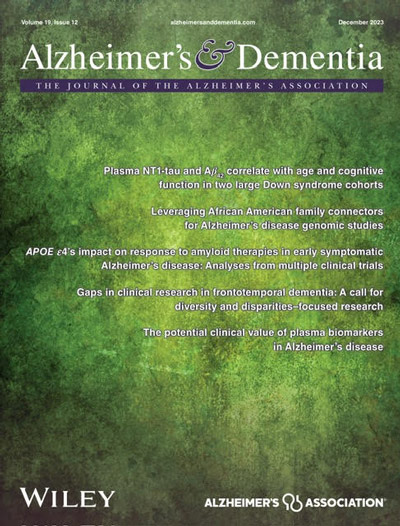Dementia prevalence in the Wisconsin Longitudinal Study
Abstract
INTRODUCTION
While there is growing appreciation of the importance of sociobiological determinants of dementia, few lifespan cohorts offer well-characterized dementia outcomes to explore these aims. We sought to identify dementia prevalence in the Wisconsin Longitudinal Study (WLS), one of the most comprehensive lifespan cohort studies in the United States.
Highlights
- We found dementia prevalence in the WLS to be 8.9% when this large population-based cohort was sampled at a mean age of 81.
- Of the identified dementia cases, 79% were clinically determined to be due to a presumed underlying etiology of AD.
- The targeted multiphased assessment approach used to classify dementia in WLS will be iteratively repeated over time to capture new dementia incidence, complemented by parallel efforts to link WLS with Medicare claims data to identify additional dementia cases among non-respondents or those not selected into the ILIAD sampling frame.
- Ongoing data collection efforts include in-home blood collection efforts to characterize plasma levels of AD biomarkers in the WLS cohort.
- When resultant dementia classifications are combined with the robust prospectively collected life course data covering a wide array of socioeconomic, educational, occupational, social, behavioral, and physical health variables, the WLS dataset offers an unparalleled opportunity to investigate the sociobiological determinants of late-life dementia.
METHODS
Using a targeted multiphased assessment approach, participants were first screened for dementia risk using a phone-based cognitive assessment. Those scoring below cut-off underwent additional cognitive/medical assessment to determine a consensus-based cognitive diagnosis and suspected underlying etiology.
RESULTS
Cognitive status was determined for 5414 participants, with a dementia prevalence of 8.9% when assessed at a mean age of 81 years.
DISCUSSION
The WLS offers prospectively collected data covering nearly every facet of participant's lives from high school to late life. When combined with newly defined dementia outcomes, the WLS dataset offers a valuable resource to explore full life course determinants of dementia.

 求助内容:
求助内容: 应助结果提醒方式:
应助结果提醒方式:


